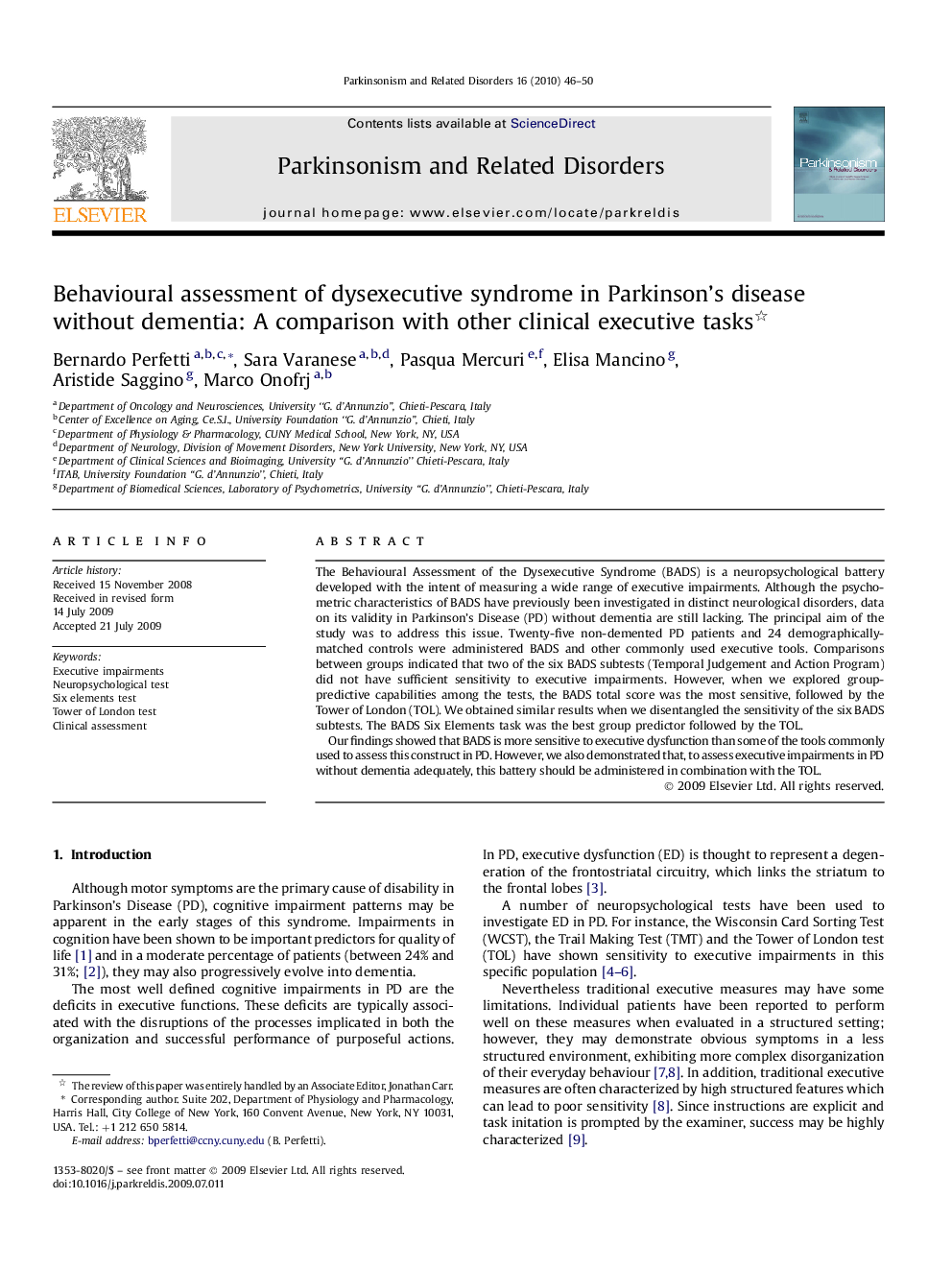| کد مقاله | کد نشریه | سال انتشار | مقاله انگلیسی | نسخه تمام متن |
|---|---|---|---|---|
| 1921466 | 1048772 | 2010 | 5 صفحه PDF | دانلود رایگان |

The Behavioural Assessment of the Dysexecutive Syndrome (BADS) is a neuropsychological battery developed with the intent of measuring a wide range of executive impairments. Although the psychometric characteristics of BADS have previously been investigated in distinct neurological disorders, data on its validity in Parkinson's Disease (PD) without dementia are still lacking. The principal aim of the study was to address this issue. Twenty-five non-demented PD patients and 24 demographically-matched controls were administered BADS and other commonly used executive tools. Comparisons between groups indicated that two of the six BADS subtests (Temporal Judgement and Action Program) did not have sufficient sensitivity to executive impairments. However, when we explored group-predictive capabilities among the tests, the BADS total score was the most sensitive, followed by the Tower of London (TOL). We obtained similar results when we disentangled the sensitivity of the six BADS subtests. The BADS Six Elements task was the best group predictor followed by the TOL.Our findings showed that BADS is more sensitive to executive dysfunction than some of the tools commonly used to assess this construct in PD. However, we also demonstrated that, to assess executive impairments in PD without dementia adequately, this battery should be administered in combination with the TOL.
Journal: Parkinsonism & Related Disorders - Volume 16, Issue 1, January 2010, Pages 46–50